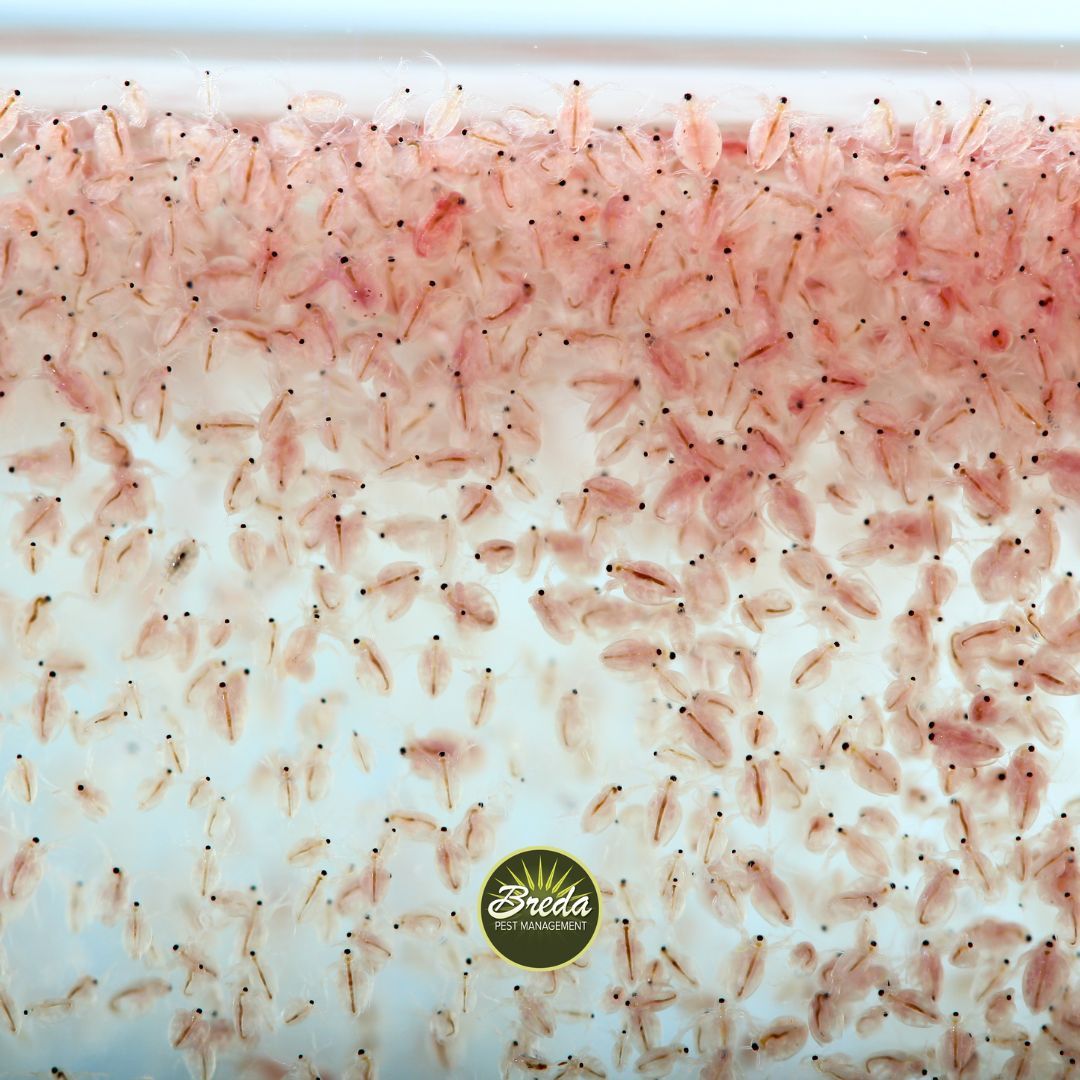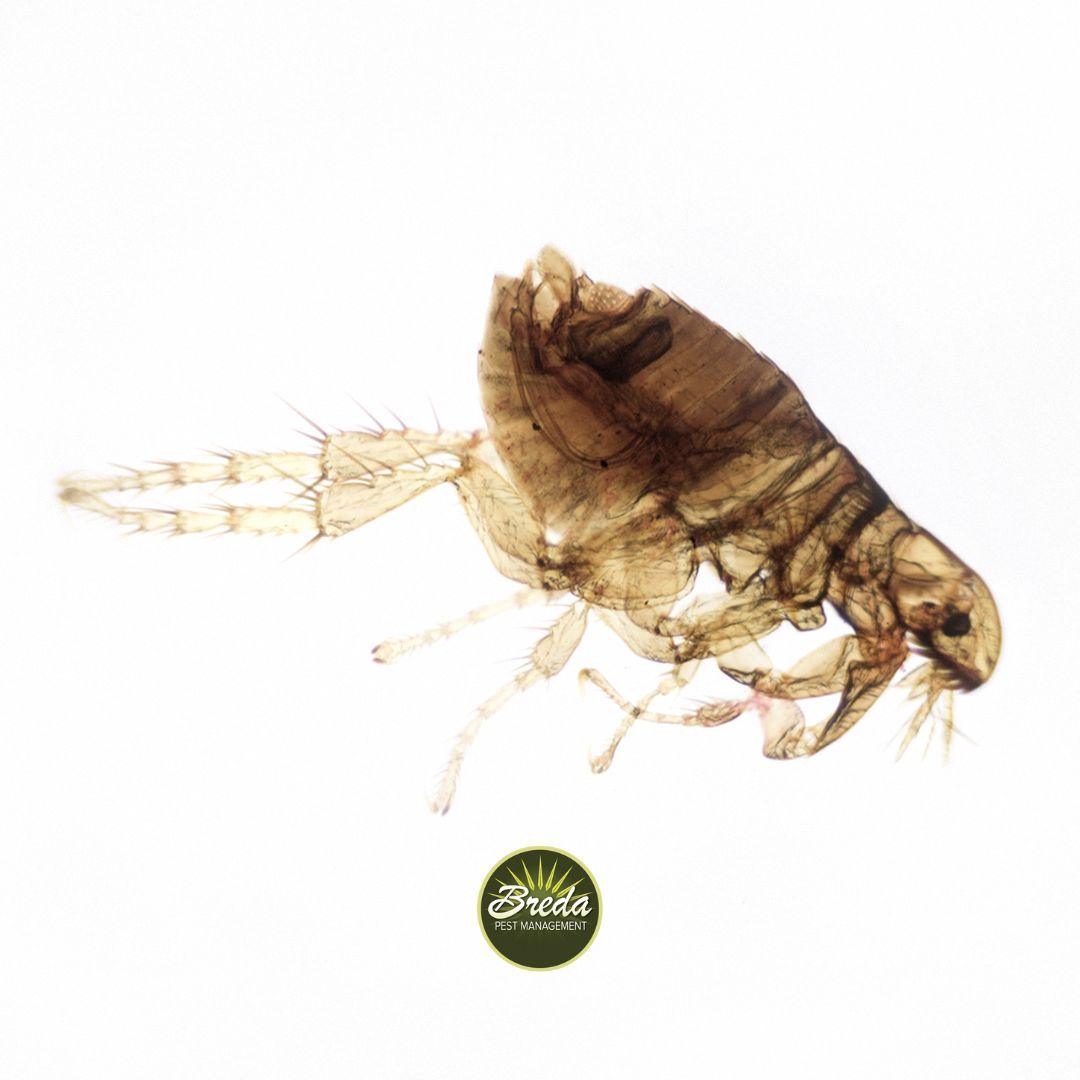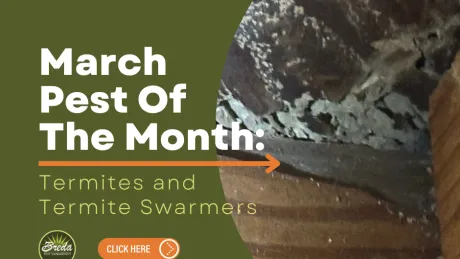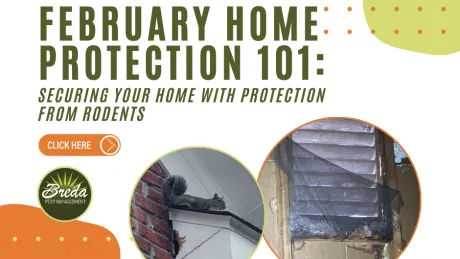
Learn more about how to get rid of fleas in your home
It's every pet owner's worst nightmare: one minute, their beloved pet is totally normal; the next minute, they're itching and scratching all over the house. Fleas are not a surprising risk of pet ownership, but when fleas show up on your pet, it's never a good time. Once your pet brings fleas into your house, how long does it take to get rid of a flea infestation? The answer to that question depends on how seriously you approach the situation. Keep reading to learn how to get rid of fleas!

Life Cycle of a Flea
To effectively get rid of a flea infestation in your house, you must understand the life cycle of a flea. Here are the stages of a flea's development:
Egg - Female fleas can lay up to 500 eggs in their lifetimes, so this explains how fleas seem to multiply overnight. After an egg is laid, it can hatch within a couple of days or can take as long as a couple of weeks to move into the next stage.
Larvae - Once a flea has hatched, it becomes a larva. Flea larvae will seek out dark areas to continue growing, since they are born blind. To grow, flea larvae will eat the waste of adult fleas, known as "flea dust."
Pupae - Perhaps the most terrifying life stage of a flea, the pupae stage is the last development step before a flea is a full-grown adult. During pupae stage, fleas reside in a protective cocoon that can sustain the flea for months (sometimes even years!) while it waits for the perfect conditions to hatch. The flea's cocoon has a sticky outer layer, which helps it burrow deep and hold on, and the cocoon also protects the developing flea from chemical applications.
Adult - These are the fleas that you will commonly see. Once the flea hatches from its protective cocoon, it will seek out a meal within the first few hours. Once fleas have had a blood meal, the life cycle begins again.
How to Get Rid of Fleas in Your House

Now that you've read how a flea develops, you will understand just how complicated and intricate of a process it is to get rid of fleas in your house. Using products or DIY pest control tricks that only address the adult fleas will give you a tiny break in your flea infestation, but it doesn't get rid of the entire problem.
To completely get rid of fleas in your home, you have to attack every developmental stage of the flea. Adult fleas are arguably the easiest to get rid of, as they are susceptible to chemical treatments and can easily be removed from your animals, and vacuumed off of your floors and carpets.
The earlier life stages of fleas are more difficult to treat but are well worth the effort. Similar to mosquito or termite treatments, it is easier to treat preventatively than reactively. The key to stopping fleas is to use a product that contains an IGR (Insect Growth Regulators), which disrupts the life cycle between larvae and adult fleas, resulting in fleas that don't bite and therefore cannot reproduce. Treatments with IGRs take around 6 weeks to work, but are known to last for up to 7 months.
Another option for removing a flea infestation from your home is to essentially flush all of the fleas out. PetMD had this treatment action plan that any homeowner can follow: "Treat the environment properly by vacuuming regularly for several weeks and thoroughly washing bedding and toys in hot soapy water to remove eggs, larvae, and pupae. Remember to seal and remove vacuum bags after a cleaning session. You can even encourage faster emergence of the remaining pupae with a humidifier and an increase in the home temperature. Once all the hibernating pupae have emerged, you can make sure they are all destroyed." (Read more of this helpful article on fleas here!)
If you're tired of wondering what the pests in or around your home are doing and just want them gone, don't hesitate to give us a call. The BREDA Guarantee promises to protect your home and keep it protected—no matter the circumstances. Schedule an inspection online or give us a call at 770-466-6700.



